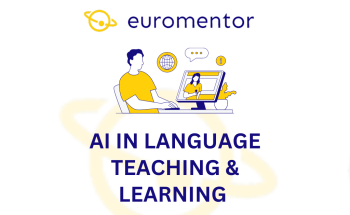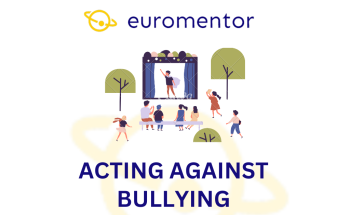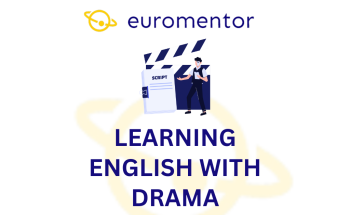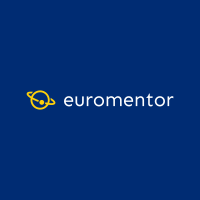
Inclusive Education: All Children Are Special (Barcelona, Spain)
This course empowers educators with the knowledge and skills needed to create welcoming, supportive, and inclusive classrooms where every child can thrive and reach their full potential, regardless of their unique learning needs or backgrounds.
Description
- The "Inclusive Education: All Children Are Special" course is designed to provide teachers with a comprehensive understanding of inclusive education principles and practices.
- Creating inclusive classrooms is a primary focus of the course. Teachers will develop strategies to foster an inclusive classroom environment that values and welcomes all students.Differentiated instruction is another essential aspect of the course. Participants will understand the concept of differentiated instruction and its role in addressing diverse learning needs
- Collaboration and teamwork are critical in inclusive education. The course explores collaborative teaching models and strategies for working with special education professionals and support staff.
- The Universal Design for Learning (UDL) framework will be introduced to help teachers develop flexible, inclusive lesson plans and curriculum materials.
- The course addresses assessment and evaluation methods in an inclusive classroom. Teachers will explore inclusive assessment techniques that consider diverse learning needs. Strategies for providing feedback and support to students of all abilities will be covered. Behaviour management and promoting social inclusion are vital components of the course. Teachers will develop strategies for encouraging positive behaviour and fostering social inclusion among all students.
- Course Category: Wellbeing, Inclusion and Classroom Management
- Related Courses: Art Therapy in Special Education, Social and Emotional Learning (SEL) for Teachers: Building Stronger Classrooms, Teacher Resilience and Wellbeing: Nurturing Balance for Classroom Success
- You can also directly contact us by email: info@euromentor.es
Learning objectives
- Comprehensive Understanding: Participants will develop a comprehensive understanding of inclusive education principles and practices, including its historical context and legal foundations.
- Diverse Learning Needs: Students will be able to identify and appreciate the diverse learning needs in their classrooms, encompassing disabilities, cultural backgrounds, and various learning styles.
- Inclusive Classroom Creation: Teachers will gain the skills to create inclusive classroom environments that value and welcome all students, considering factors like classroom design, materials, and resources.
- Differentiated Instruction: Participants will be equipped to implement differentiated instruction techniques, adapting lessons to cater to different learning styles and abilities.
- Collaboration and Teamwork: Educators will learn how to effectively collaborate with special education professionals, support staff, and parents or caregivers, fostering a cooperative learning environment.
- Universal Design for Learning (UDL): Participants will understand and apply the Universal Design for Learning framework to develop flexible, inclusive lesson plans and curriculum materials.
- Inclusive Assessment: Teachers will be able to employ inclusive assessment methods that accommodate diverse learning needs, providing equitable feedback and support.
- Behaviour Management and Social Inclusion: Students will develop strategies to promote positive behaviour and enhance social inclusion among all students, addressing challenges like bullying.
- Individualised Education Plans (IEPs): Participants will understand the purpose of Individualised Education Plans (IEPs) and learn to collaborate effectively with special education teams in their development and implementation.
- Practical Application: The course will enable educators to apply inclusive education principles and strategies in real-world settings, using case studies and practical activities.
Methodology & assessment
Interactive Workshops: The course employs a hands-on approach, featuring interactive workshops, group discussions, and collaborative activities.
Peer Learning: Participants engage in peer-to-peer learning, benefiting from the diverse backgrounds and experiences of their fellow educators.
Practical Application: The training emphasises the practical application of concepts learned.
Assessment:
Formative Assessment: Continuous assessment methods are employed throughout the course, including quizzes, group presentations, and reflective journals.
Final Project: Participants are required to develop a final project that incorporates the knowledge and skills gained during the course.
Course Evaluation: At the end of the course, participants are asked to complete an evaluation form, offering insights into the effectiveness of the training program.
Certification details
Our courses are in line with the Erasmus+ Quality standards for courses under Key Action 1 (learning mobility of individuals)
Participants are required to attend a minimum of 80% of the course sessions. Additionally, active engagement and participation in group discussions and practical activities are encouraged to enhance the learning experience.
Upon the successful completion of the training course, participants will obtain;
- Certificate of Attendance: includes the name of the participant and the trainer, the location, the dates, learning hours and competences acquired.
- Learning Agreement(s)
- Europass Mobility Document(s)
Pricing, packages and other information
-
Price:400Euro
Additional information
-
Language:English
-
Target audience ISCED:Primary education (ISCED 1)Lower secondary education (ISCED 2)Upper secondary education (ISCED 3)
-
Target audience type:TeacherHead Teacher / PrincipalTeacher Educator
-
Learning time:25 hours or more
Upcoming sessions
Past sessions
More courses by this organiser

Integrating Artificial Intelligence (AI) into Language Teaching and Learning (Barcelona, Spain)

Acting Against Bullying: Empowering Teachers with Mindfulness and Theatre Techniques (Barcelona, Spain)



